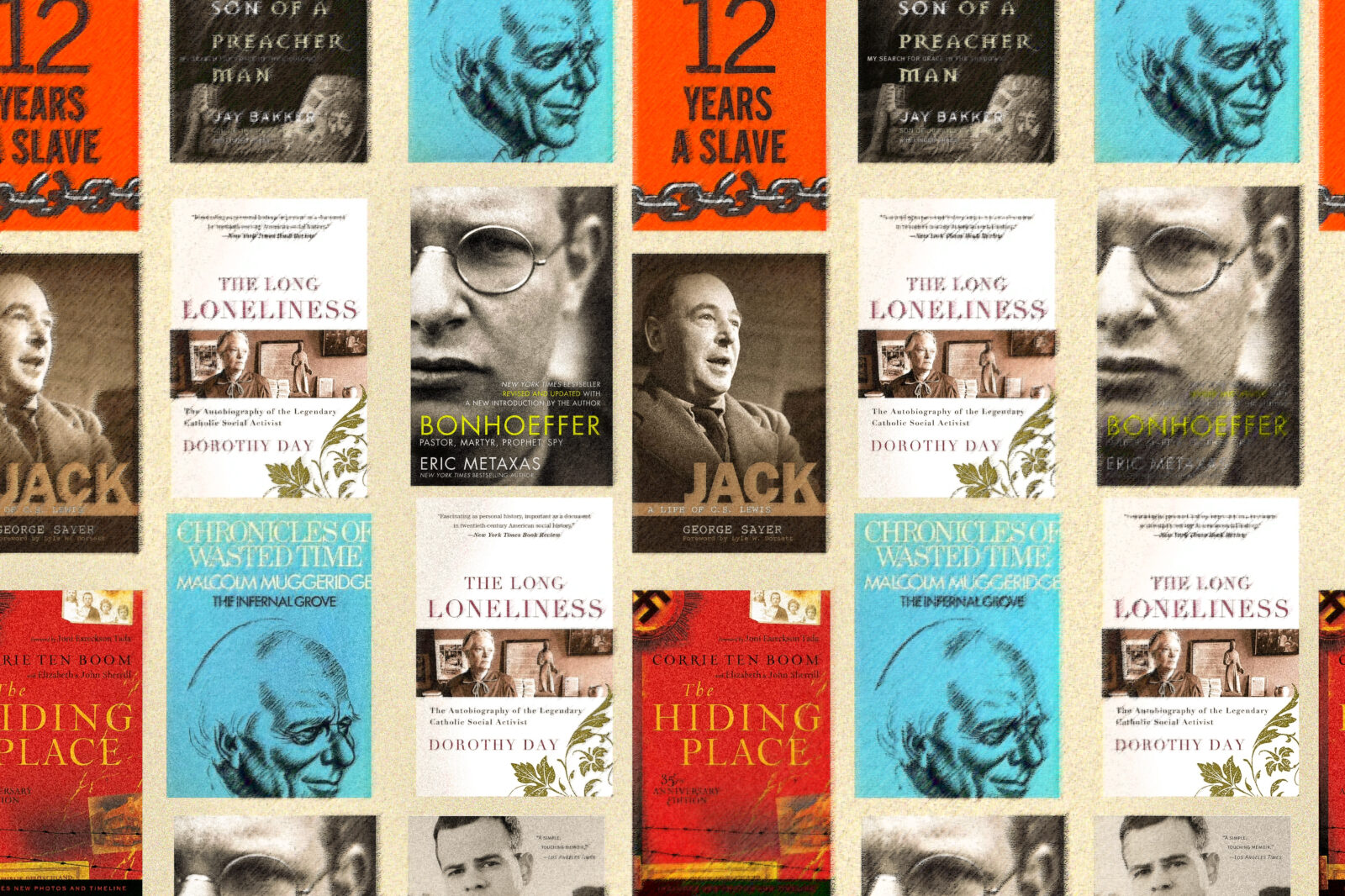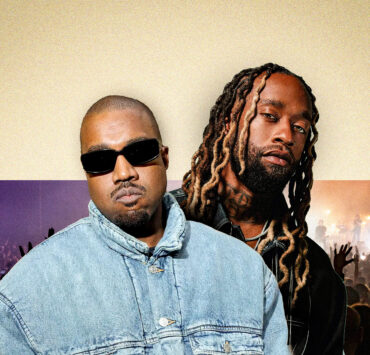We all love a good story.
Stories transport us to other times and places, they teach important lessons, they inspire us and show us what we have in common.
And while fiction is wonderful and valuable, stories are all the more compelling if they’re true.
It’s impossible to compile a definitive list of best biographies and autobiographies—you could probably spend a lifetime reading well-written tales of inspiring people—but here are a few we think are worth your time.
Bonhoeffer: Pastor, Martyr, Prophet, Spy by Eric Metaxas
The story of a German pastor and anti-Nazi who got involved with a plot to kill Hitler is interesting in and of itself, but Eric Metaxas broadens the story, showing the history of Hitler’s rise to power and weaving in Bonhoeffer’s writing and thoughts. The result is a fascinating narrative that is both informative and, in ways, devotional. While Bonhoeffer’s Ethics and The Cost of Discipleship have become classics, the thoughts behind them are even more rich in the context of the what the writer himself had to sacrifice. More than just a look into the mind of one of the great theologians of the 20th century, Bonhoeffer is a story of one man’s dedication to following Christ’s leading amid the changing morals of pre-WWII Germany.
Jack: A Life of C.S. Lewis by George Sayer
With its insertions of personal conversations with the author and descriptions of his life and times from real memories, Jack: A Life may be the best “gateway biography” for any Lewis enthusiast. This is the most personal of Lewis’ biographies, with an intimate feel that cannot be emulated by Lewis’ other biographers who did not know him as a friend. Ask yourself who you would choose to write your own biography: a friend who knew you behind closed doors, or a scholar 30 years on, full of Freudian ideas of the subconscious, and working only on your books, correspondence, and others’ recollections and impressions of you. Granted, other biographies of Lewis are valuable because they are distant from him, but Sayer’s friendship with Lewis does not make him shy away from the controversial issues surrounding the author’s life. He faces them head on and judges fairly.
The Long Loneliness by Dorothy Day
The Long Loneliness, Dorothy Day’s story of conversion and dedication to the Catholic Worker’s Movement, is a challenge to all Christians to love as Christ loved. Although her early adult life was spent as an iconoclast and a socialist, including stints in jail and an abortion, she began feeling the tug of the Holy Spirit. Upon the birth of her first child, Day joined the Catholic Church and eventually met Peter Maurin, with whom she would found the Catholic Worker Movement. Day’s approach to the faith was at once orthodox and unconventional, deeply influenced by the teachings of Christ about the poor and oppressed—those on the fringes of society Day felt the Church had become complacent toward. In spite of Day’s controversial character, The Long Loneliness is a must-read “spiritual autobiography” with broad appeal across religious denominations, political affiliations and social views.
John Adams by David McCullough
Along with being a fascinating story of one of our country’s founding fathers, John Adams is one of the few biographies on anyone to cross into the realm of beautiful writing and nearly perfect prose. It is not only a well-researched, well-paced biography, it is fine literature and can be as compelling and moving as any fiction. McCullough’s portraits of 18th century Philadelphia, London, Paris, New York and Washington and the personalities inhabiting those cities are just that, masterful portraits painted with a careful “brush.” What sets McCullough apart from other biographers is his impeccable choice of detail. He knows just when to describe a meal, a suit of clothes, or a weather forecast for a particular day. McCullough is to biography what Tolkien is to high fantasy—a towering genius unmatched by most of his imitators.
The Hiding Place by Corrie Ten Boom
Although it’s an autobiography, Corrie Ten Boom’s The Hiding Place is really the story of a whole family and their dedication to serving Christ in Holland during WWII. The Ten Booms, a humble and simple family, risked their lives to hide Jews in their home. As a critical component of the Dutch resistance movement, the family is forced to make difficult and often morally ambiguous choices that ultimately land them in Dutch and German concentration camps. The Hiding Place is not an easy read—it plumbs the depths of despair, hopelessness and doubt. Yet there’s intense victory in the darkness, owing to a hidden Bible and the unwavering desire of Corrie and her sister to share Christ’s love with the other prisoners and their Nazi captors. This is a biography that resonates long after the final page is turned.
12 Years a Slave by Solomon Northup
Even if you’ve already seen Steve Mcqueen’s Oscar-nominated film adaptation, this autobiography is well worth reading. The story of a free black man in the North who’s kidnapped and sold into slavery, 12 Years a Slave is a rare, heartbreaking look into what life was like for slaves in the South. Northup shows the cruelty and cowardice of the slave owners he witnessed with a fair hand, and keeps a hopeful tone even while depicting the horrors of slave life. While it’s not an easy read (you may want to keep a box of tissues nearby), it’s an important one.
Chronicles of Wasted Time by Malcolm Muggeridge
Malcolm Muggeridge earns his place as the post-Chestertonian voice of Christian reason in Chronicles of Wasted Time—an autobiography cited by many as the single best of the 20th century. The work follows the journalist, intellectual, spy and onetime atheist and communist sympathizer from his early life through his conversion to Christianity. Chronicles is the rare work full of literary depth, social critique and brilliant humor in equal measure, with references to a variety of characters from Churchill to Chanel. What makes it essential reading, however, is Muggeridge’s life story, which spans nearly the entirety of the 20th century and captures the wholeness of his conversion: from Stalin sympathizer to fierce critic, from hedonist to ascetic, from lifelong agnostic to Christian in his sixties. It’s a thrilling adventure that proves, in Muggeridge’s own words, that “Every happening, great and small, is a parable whereby God speaks to us—and the art of life is to get the message.”
Son of a Preacher Man: My Search for Grace in the Shadows by Jay Bakker
Sex, lies, drugs and greed: they sound like sketchy nouns reserved for scandalous TV shows or celebrity tabloids. But how does the narrative of those words change when they’re all intertwined with the family of a…preacher?
You may or may not have heard of Jim Bakker. A famous televangelist in the 80’s, Bakker would be convicted of defrauding loyal followers of his “PTL (Praise the Lord)” ministry. His family was ravaged by drug abuse, adultery and, tragically the unabashed condemnation of other famous Christian leaders at the time.
In this book, Jim Bakker’s son Jay does more than offer a glimpse into the Bakker family: he rips down the entire curtain to show all the flaws and tribulations of a pastor, his wife, and their children. Despite the pain and shame felt by all members of the Bakker family, Jay shares just how God’s love and grace redeemed him and his family.























